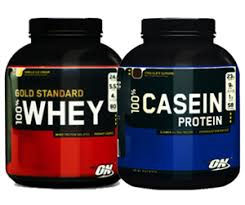Caffeine Benefits
- schmidttm6
- Dec 15, 2020
- 3 min read

Caffeine has shown to provide a variety of benefits for athletes. A recent review has reported that there are ergogenic effects of caffeine when it comes to muscle strength, anaerobic power, muscular endurance and aerobic endurance. It's debated that caffeine may also help with DOMS (delayed onset muscle soreness) and may decrease the feeling of fatigue. Not only does it provide physical benefits, but also cognitive benefits. These cognitive benefits include improved mood, focus and sports performance when sleep deprived . These benefits typically improve athletic performance for 3-4 hours (1).
Be aware that caffeine can also cause negative effects on performance. It's important to understand how much caffeine you should consume. Each person reacts differently to caffeine. To get an idea of how much you should consume, take 3 mg/kg of body weight (2). Caffeine can potentially increase feelings of anxiety, especially pre-competition when there's an increase in arousal (1).
I've experienced this at a conference track meet. My go-to form of caffeine is an energy drink. I typically have one before competition and will be able to perform fine. However, the stakes were higher for this meet. The amount of adrenaline that my body released for this competition was enough to get me through, but I didn't realize that until it was time to actually compete. The anxiety I experienced got to the point where I wasn't able to control it and my performance was hindered. After that experience, I realized that my performance can benefit from caffeine in low-stress competition but not in high-stress competition. Be observant how how your body reacts to caffeine in different situations.
Evidence Based Research
A study performed by Giráldez-Costas et al. randomly selected individuals and placed them in either a placebo group or a caffeine powder group (3 mg/kg of body weight). Each group performed the same amount of sets and reps at 70% of their 1-RM bench press. The velocity, force and power was recorded. The results showed that the caffeine powder group had a greater velocity, force and power when compared to the placebo group (3).
Another study performed by Norum et al. divided women into two groups: placebo group and caffeine group. Tests performed included countermovement jump (CMJ), squat and bench press. Individuals in the caffeine group saw greater jump height, power and force when testing CMJ, greater 1-RM bench press and squat numbers and less perceived pain for bench press and squat after the tests were completed (4).
Similar results to Norum et al.'s study were found by Grgic and Mikulic. Participants partook in the vertical jump, a seated medicine ball throw, 1-RM back squat, back squat to failure, 1-RM bench press and bench press to failure. These individuals reported their rate of perceived exertion (RPE) and pain perception (PP). Individuals that were assigned to the caffeine group reported lower RPE and PP for 1-RM squat and bench, as well as squat and bench repetition to failure when compared to the placebo group. Significant differences were only found in RPE for 1-RM and PP for 1-RM bench. The caffeine group also scored higher results for 1-RM squat and repetition to failure, 1-RM bench and repetition to failure, vertical jump height and seated medicine ball throw. However, only the seated medicine ball throw and 1-RM squat showed significant difference between the two groups. Grgic and Mikulic concluded their results by suggesting that individuals participating in maximal strength and power training/competition should consider taking 6 mg/kg of body weight prior to performance (5).
Forms of Caffeine:
Coffee
Tea
Soda
Energy drinks
Caffeine gummies
Caffeine pills
Pre-workout
Note: some forms of caffeine may not settle well with your stomach, especially during competition
The NCAA has certain restrictions on supplements. Be sure to double check with a coach or your athletic department before using. Click here to view a list of banned substances.Resources
Craig, P., & Grgic, J. (2020). A time and a place: A framework for caffeine periodization throughout the sporting year. Institutional Journal of Applied and Basic Nutritional Science, 79-80, 1-6. doi:10.1016/j.nut.2020.111046
Brown, G., Dr. (2020). Chapter 3 - Neural Control of Exercising Muscle. Lecture presented at Exercise Physiology in University of Nebraska-Kearney, Kearney.
Giraldez-Costas, V., Gonzalez-Garcia, J., Lara, B., Del Coso, J., Wilk, M., & Salinero, J. J. (2020). Caffeine Increases Muscle Performance During a Bench Press Training Session. Journal of Human Kinetics, 74, 185-193. doi:10.2478/hukin-2020-0024
Norum, M., Risvang, L. C., Bjørnsen, T., Dimitriou, L., Rønning, P. O., Bjørgen, M., & Raastad, T. (2020). Caffeine increases strength and power performance in resistance‐trained females during early follicular phase. Scandinavian Journal of Medicine & Science in Sports, 30(11), 2116-2129. doi:10.1111/sms.13776
Grgic, J., & Mikulic, P. (2017). Caffeine ingestion acutely enhances muscular strength and power but not muscular endurance in resistance-trained men. European Journal of Sport Science, 17(8), 1029-1036. doi:10.1080/17461391.2017.1330362
.png)



Comments